Stray dogs don’t have the luxury of living a day without worry, and their ultimate goal is to find a place to call their own.
Sadly, only a small percentage of these lifetime wanderers catch the attention of a kind-hearted soul, but when that happens – they, without a doubt, become the greatest pets in the world!
One such story comes from Missouri, where a family found a tiny dog lying on a front porch. Scared, hopeless, and in full survival mode, the pup refused to budge until someone showed her what kindness looks like – for the first time, ever!
Desperately Looking For A Caring Soul
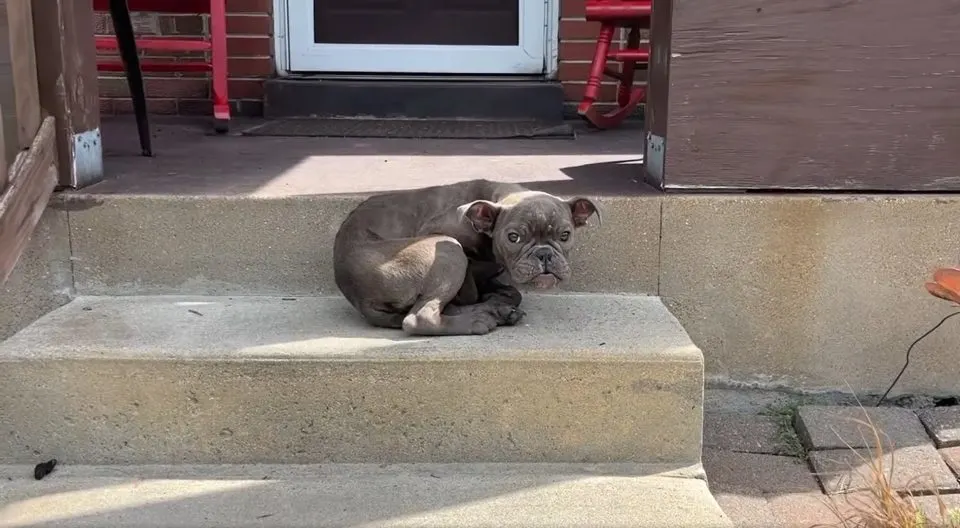
Stray Rescue of St. Louis, in Missouri, got a call from a family who reported a dog resting on their front porch.
When they arrived at the house, their first thought was that the pup was injured because she wasn’t moving at all. But then, as SRSL volunteers approached her – the pup stood up and lunged at them, trying to defend herself at all costs.
“This baby broke our hearts. She was expecting to be hurt by us,” SRSL wrote on their official Facebook.
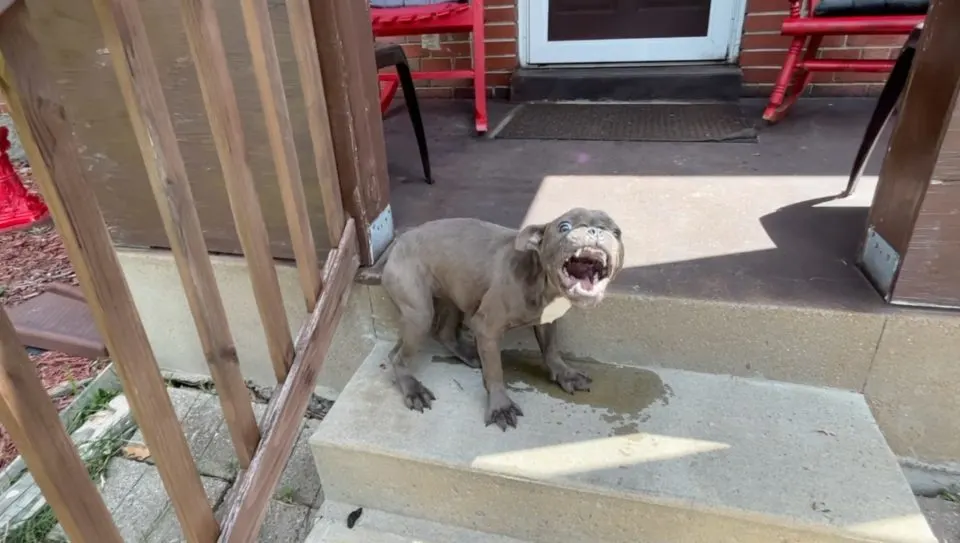
Life was no picnic for this puppy. Even though nobody knew what exactly she’d been through, it was more than clear that she was deprived of love and kindness.
The SRSL staff started giving her treats, patiently waiting for her to realize that they wouldn’t hurt her – and after some time, she let her guard down and allowed them to put a leash on her.
The dog, later named Babbit, was safely removed from the porch and transferred to the SRSL facility where she got all the needed care and attention.
So exhausted, but then again, so relieved, Babbit finally melted in her rescuers’ arms and started displaying her gentle side. At the end of the day – the volunteers realized she was nothing but a tiny lovebug in a lifetime search for someone to love and accompany.
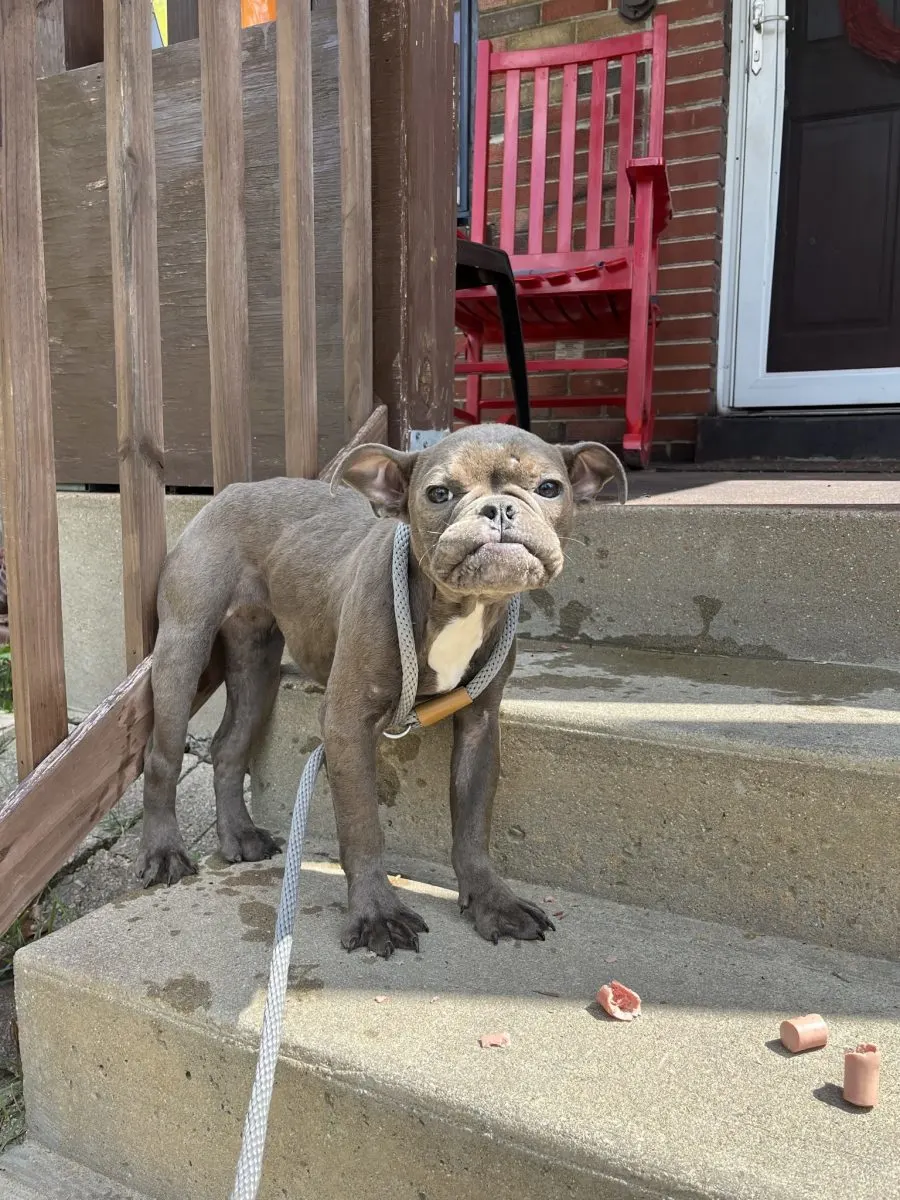
“All she wanted was kindness, and to be deprived of that until now breaks our heart,” SRSL wrote.
Amazing Transformation In A New Foster Home
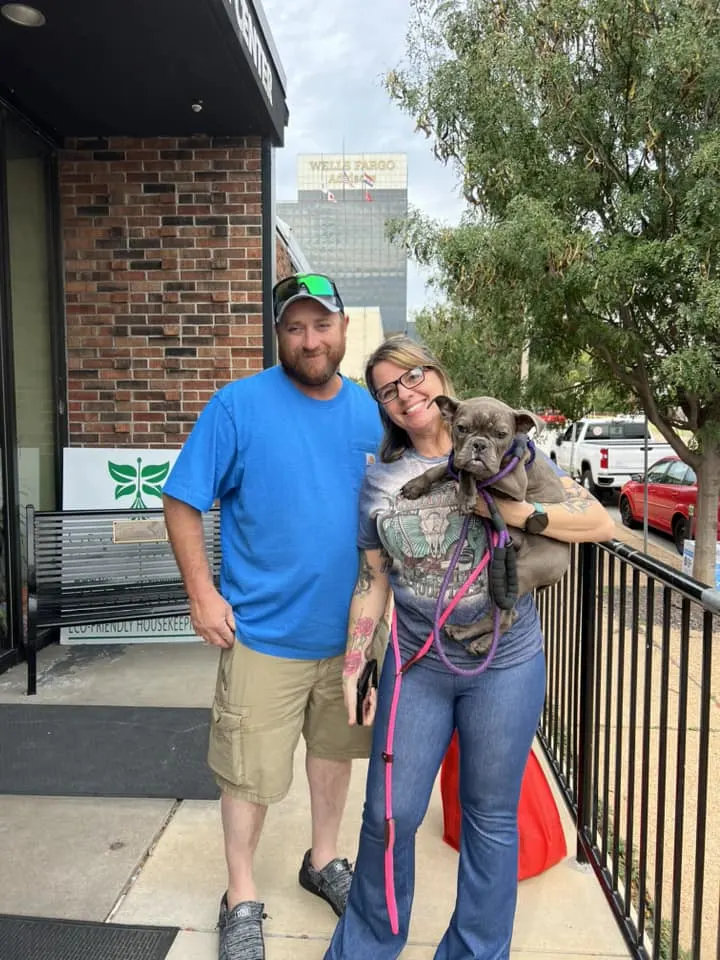
Babbit got a foster home in record time, and she was more than happy to embark on a beautiful journey with her new family!
She even got the identical doggo sibling in a new home, which was amazing! She was so happy to finally be in a home filled with love, and now that she has a twin and a companion of her own – she’s just over the moon!
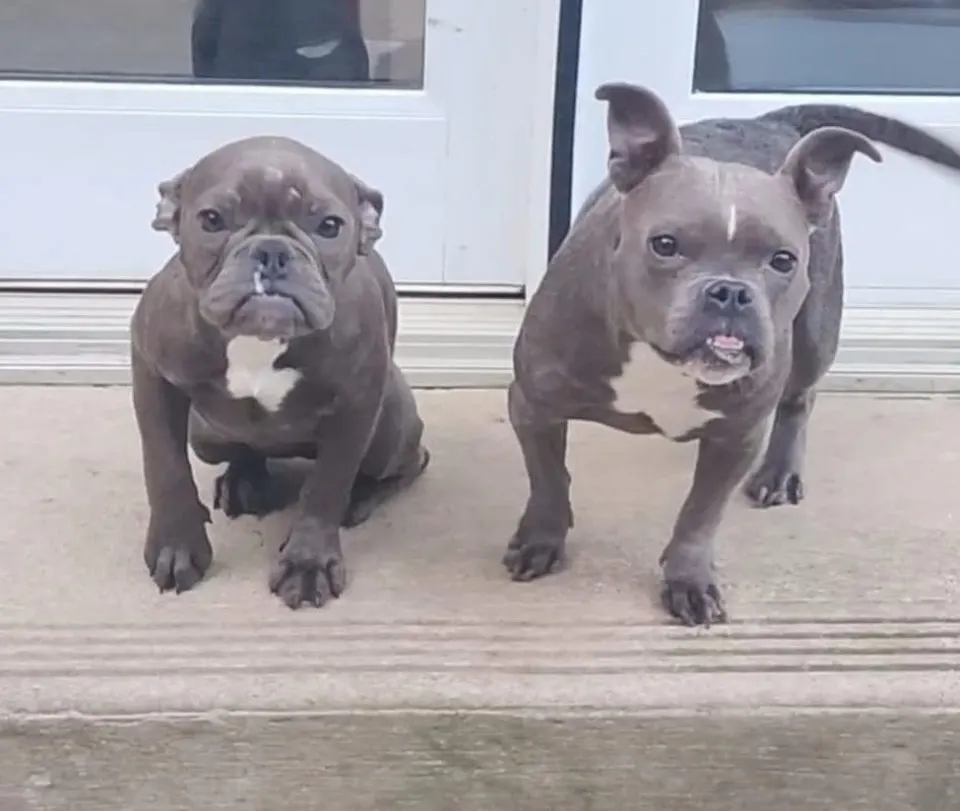
“The family that took her home actually have a dog that looks almost identical to her! Babbit has been cuddling with them on the couch and she loves their little dog, her twin,” the SRSL team wrote.
Once a stray dog without a plan, Babbit finally replaced a random porch with a comfy bed, where she can put all of her nightmares behind her and dream only about her long-awaited, beautiful tomorrow!
You can watch her full rescue in the video below!
Ever noticed your furry friend’s poop looking darker than usual? It might catch you off guard, but don’t fret just yet. Your pup’s poop can vary in color for a multitude of reasons, and black stool is no exception. As a seasoned dog enthusiast, you’re well aware that a dog’s bathroom habits can speak volumes about their health.
When it comes to deciphering the mysteries behind your dog’s black poop, there’s no one-size-fits-all answer. It could be a harmless dietary quirk, or it might signal an underlying health issue that warrants attention. As a responsible pet parent, staying informed about your dog’s bodily functions is key to ensuring their well-being. So, let’s unravel the mystery behind why your dog’s poop is black.
Understanding the Color of Your Dog’s Poop
The Meaning Behind Poop Colors
When it comes to your dog’s poop, color can provide important clues about their health. Black poop in dogs can indicate various underlying issues. It’s essential to pay attention to these colors as they can be indicative of internal problems. For instance, black poop could be a sign of bleeding in the upper digestive tract, dietary changes, or even ingestion of certain substances like blood. Monitoring your dog’s poop color regularly can help you detect any abnormalities early on.
Normal Vs. Abnormal Dog Poop
Understanding the difference between normal and abnormal dog poop is crucial for maintaining your dog’s well-being. Normal dog poop is usually brown in color, well-formed, and easy to pick up. On the other hand, abnormal dog poop can vary in color, consistency, and odor. Black poop, specifically, falls under abnormal poop and should be addressed promptly. If you notice your dog consistently producing black poop, it’s advisable to consult your veterinarian for a thorough examination. Regular monitoring and quick action can help ensure your furry friend stays healthy and happy.
Causes of Black Poop in Dogs
Dietary Factors that Affect Poop Color
Certain foods can lead to black poop in your dog. Foods like blueberries, lead to dark stool. If you’ve recently changed your dog’s diet and notice black stool, it could be due to new food he’s trying. Keep an eye on what your dog eats to understand the effects on his poop color.
Health Conditions Leading to Altered Poop Color
Black poop can signal health issues in your dog. Bleeding in the upper digestive tract can lead to dark stool. Additionally, issues like ulcers or gastrointestinal problems may also cause black poop. If you see any unusual color in your dog’s stool, especially black, consult your vet for a proper diagnosis.
Medications and Supplements Impact
Medications and supplements can also influence your dog’s poop color. If your dog is on medication and develops black stool, it could be a side effect. Some supplements can also darken the stool. Be cautious when giving your dog new medications or supplements, and monitor any changes in his poop color closely.
Regularly observing your dog’s poop can provide essential insights into his health. Any persisting black stool should prompt a visit to the vet for a thorough check-up to ensure your furry friend’s well-being.
The Significance of Poop Consistency and Texture
What Consistency Can Indicate
Dog poop consistency is a crucial indicator of their health. Changes in consistency can point to underlying issues such as gastrointestinal problems or dietary changes. Pay attention to your dog’s poop consistency as it can provide valuable insights into their well-being. Loose, watery stool may indicate digestive issues or dietary sensitivities, while hard, dry stool can suggest dehydration or lack of fiber in their diet.
When Texture Matters
The texture of your dog’s poop can also reveal important information about their health. Soft, mushy stool might be a sign of inflammation or infections in the digestive tract. Similarly, greasy or oily poop could indicate problems with fat digestion. Keep an eye out for any unusual textures like mucus in the stool, which could signal gastrointestinal issues. Consulting your veterinarian is advisable if you notice persistent abnormal textures in your dog’s poop.
When to See the Vet
Symptoms to Watch Out For
If your dog has black poop, accompanied by symptoms like lethargy, vomiting, diarrhea, abdominal pain, or loss of appetite, it’s crucial to consult a vet promptly. These signs could indicate underlying health issues that require professional attention.
What to Expect During the Vet Visit
During your visit to the vet, they will likely conduct a physical examination of your dog and may recommend tests such as blood work, fecal analysis, or imaging studies to determine the cause of the black poop. Based on the findings, the vet will provide a diagnosis and suggest appropriate treatment options to address your dog’s specific health needs.
Preventing Future Health Issues
Proper Diet for Healthy Digestion
Ensuring your furry friend’s diet is well-balanced is key to maintaining healthy digestion. Including fiber-rich foods, such as pumpkin or sweet potato, can aid in regulating bowel movements and preventing issues like black poop. Additionally, providing plenty of fresh water throughout the day helps keep your dog hydrated and supports good digestion.
Importance of Regular Check-Ups
Regular veterinary check-ups are vital for your dog’s overall health. During these visits, your vet can assess your dog’s digestive health and spot any potential issues early on. They may recommend dietary adjustments or supplements to keep your dog’s digestive system in top shape. By staying proactive with regular check-ups, you can prevent future health issues and ensure your pup stays happy and healthy.
Conclusion
So, there you have it – the scoop on why your furry friend might have black poop. Remember, keeping an eye on your dog’s bathroom habits is key to catching any potential health issues early on. If you notice black poop and your pup seems off, don’t hesitate to reach out to your vet for a check-up. By maintaining a balanced diet, incorporating fiber-rich foods, and staying on top of those vet visits, you’re setting your dog up for a happy and healthy life. Here’s to cleaner poops and wagging tails!
Frequently Asked Questions
Why is my dog’s poop black?
Black poop in dogs can be caused by various factors, such as dietary changes, health issues like gastrointestinal bleeding, medications, or supplements containing iron. Monitoring poop color is crucial as black poop can indicate internal bleeding or other health concerns. If black poop is accompanied by symptoms like lethargy, vomiting, diarrhea, abdominal pain, or loss of appetite, it is essential to seek veterinary attention promptly for diagnosis and treatment.
What should I do if my dog has black poop?
If your dog has black poop, consult a vet immediately, especially if accompanied by other concerning symptoms. The vet may perform a physical exam, recommend diagnostic tests, and determine the underlying cause of the black poop. Treatment options will be based on the diagnosis, which can range from dietary adjustments to medications or other interventions to address the specific issue causing the black poop.
How can I prevent my dog from having black poop?
Preventing black poop in dogs involves maintaining a balanced diet, providing fiber-rich foods like pumpkin or sweet potato, and ensuring regular veterinary check-ups. Monitoring your dog’s poop for any changes in color, consistency, or texture is key to catching potential health issues early. By staying proactive with your dog’s healthcare, you can help prevent black poop and promote overall digestive health and well-being.
[no_toc]

Hey there, I’m Janet Brooks, a dog-loving student from California. I’m all about helping pups in need, especially those without homes. Me and my awesome friends work together to give shelter and love to stray dogs. Oh, and I also write blogs about dogs to share helpful info.